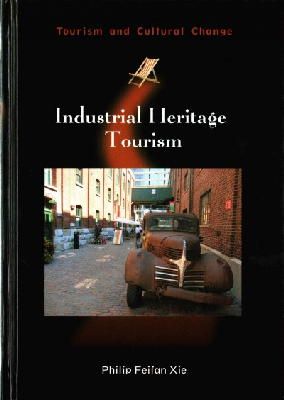
Industrial Heritage Tourism (Tourism and Cultural Change)
Philip Feifan Xie
This book examines the complex interplay between industrial heritage and tourism. It serves to stimulate meaningful dialogue about the socioeconomic values of industrial sites and the use of tourism for the growth of the creative economy, and to better understand how the collective social memory and local identity connected to these sites have been shaped by different social groups over time. The volume presents a conceptual framework underpinned by case studies drawn from Asia, North America, Australasia and Europe and advocates the creation of mixed-use spaces and stakeholder collaboration to develop tourism at industrial heritage sites. These theoretical and practical perspectives will be of use to researchers and students of heritage tourism, urban and regional planning and tourism marketing.
Product Details
About Philip Feifan Xie
Reviews for Industrial Heritage Tourism (Tourism and Cultural Change)
Dietrich Soyez, University of Cologne, Germany This book provides a framework and exemplary case studies that provide a synthesis and also provoke new ideas for the understanding and conceptualisation for those researching temporal changes and industrial landscapes. This is a great introduction to industrial heritage for students of cultural, heritage and tourism studies.
Kevin Hannam, Leeds Beckett University, UK A highly original, engaging and thought-provoking text that is thorough in its coverage and insightful in its critical appreciation of industrial heritage tourism. The ability to fuse academic rigor with flowing narrative is never easy but the author is to be congratulated on a theoretical text that delivers a new 'tourist gaze' directed at industrial heritage with nostalgia, place identity and community engagement common themes running throughout.
Alan Fyall, University of Central Florida, USA Industrial Heritage Tourism provides a succinct and meticulous model and method for rethinking historical mechanization processes, modern-day industrial operations, and their tangible vestiges as consumable heritage products. This seminal book is essential reading for all students and scholars who are interested in heritage conservation, industrialization processes, urban renewal, and heritage as a consumable commodity. I applaud Philip Xie for delivering an erudite and informative monograph and introducing a useful framework for understanding industrial heritage, which will no doubt have significant implications for the academy as this subfield of inquiry continues to flourish.
Dallen J. Timothy, Arizona State University, USA
Tourism Management 55 (2016) 197
